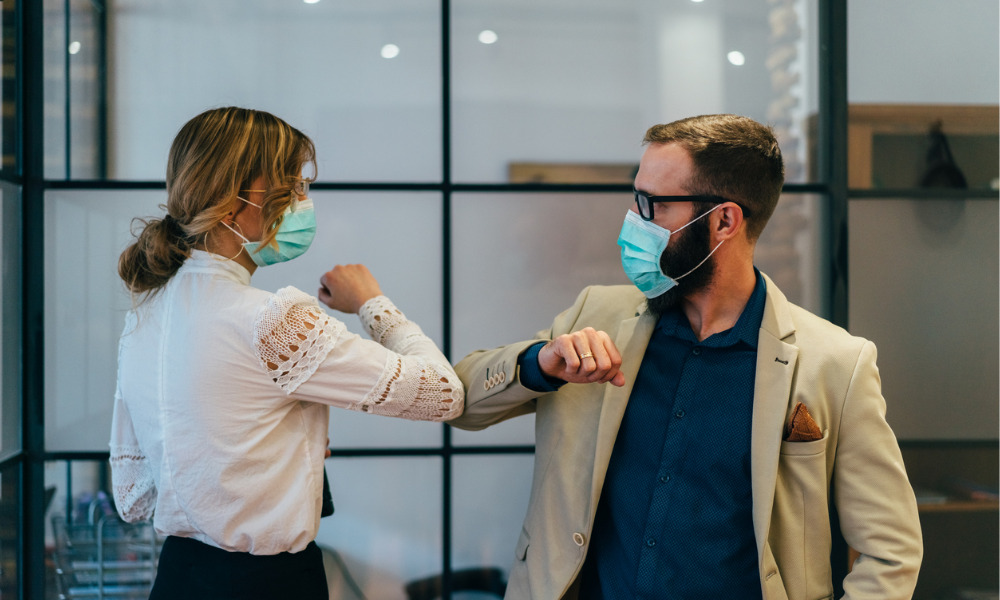
Domain’s head of employee experience reflects on their people-centric approach to navigating the pandemic

When it comes to the housing market, uncertainty is part and parcel.
But during the pandemic, our sense of normality was pulled from underneath our feet and in its place, chaos and confusion loomed.
Rising infection rates, ever-changing public health guidelines and plummeting share prices saw many businesses in turmoil.
Faced with the halt on property auctions and the prospect of falling revenue, real estate giant Domain was in an industry hardest hit by COVID-19.
Speaking to HRD, Domain’s employee experience group director Rosalind Tregurtha said the business had to make some huge decisions – and fast.
“We had to decide, do we go down the traditional path of standing people down and making redundancies or is there an alternative way we can manage our costs?” she said.
Conversations at the executive and board level centred around reducing staff costs – the bulk of Domain’s outgoings – and Project Zipline was born.
“It was a mechanism for us to ask our employees to make a sacrifice in terms of salary to ultimately give the business the ability to save money while revenue was unknown,” Tregurtha said.
Read more: CEO reveals top three challenges for HR leaders
The redundancy route many other businesses were taking would’ve been costly in itself and importantly, caused Domain to lose talent.
At a time when people were naturally feeling powerless to the pandemic, Tregurtha said it was important that Project Zipline started and ended with employees.
HR began consulting with employees around the various options but Project Zipline would only go ahead if 90% of staff agreed.
“The scheme was pushed out to employees to say we have some options and we want you to be a part of the decision making process,” Tregurtha said.
The options included a 20% salary reduction with the surplus made up of share rights, a four-day week, five weeks leave without pay, or the alternative - redundancies and furloughed staff.
Employees overwhelmingly opted for Project Zipline, and strict time pressures around offering shares meant those implementing the scheme had a tight deadline to pull it off.
The executive team, and CEO/board members also voted for higher levels of inclusion at 30% and 50% respectively.
With the green light from employees, HR faced a mammoth task.
Tregurtha said one of the biggest challenges was the sheer amount of consultation and information HR needed to get out to staff – especially while working from home.
In the end, they produced 17 pages of Q+As to ensure staff were informed and kept up to date.
Despite the hurdles, Tregurtha said being able to offer six-months of certainty was a driving-factor for her and the other executive leaders.
“It was a real opportunity for us to demonstrate we were genuinely trying to put the employees first and think about how to help them through this period,” she said.
“From a career moment perspective, it was an amazing experience to be a part of.
“As the HR leader, to be able to say we have done this incredibly innovative program during a time of craziness was unforgettable.”
Read more: Your workforce is on the move – but are you keeping up?
To meet the speed required to roll out Project Zipline, the RACI model was used to identify clear and defined paths of communication between departments.
It helped to pinpoint who was responsible, accountable, consulted and informed (RACI) throughout each stage.
Tregurtha believes those streamlined communications were a stand-out success of the project, enabling them to move on tasks efficiently.
Now that Project Zipline has concluded and staff have returned to pre-pandemic salaries, it’s an opportunity to reflect on how giving employees a level of certainty helped to maintain productivity.
Regular pulsing surveys also found employee engagement has risen during Project Zipline, with an 18% rise on the previous year.
Aside from engagement, the scheme also allowed Domain to continue hiring for key roles during the pandemic and now, staffing levels are higher than in March.
Looking to next year, the focus will be on maintaining that level of employee engagement as mindsets shift from survival to recovery.
“It’s about how do you maintain those really good scores and what else do you need to be doing from a leadership and management perspective,” Tregurtha said. “That’s our next challenge.”